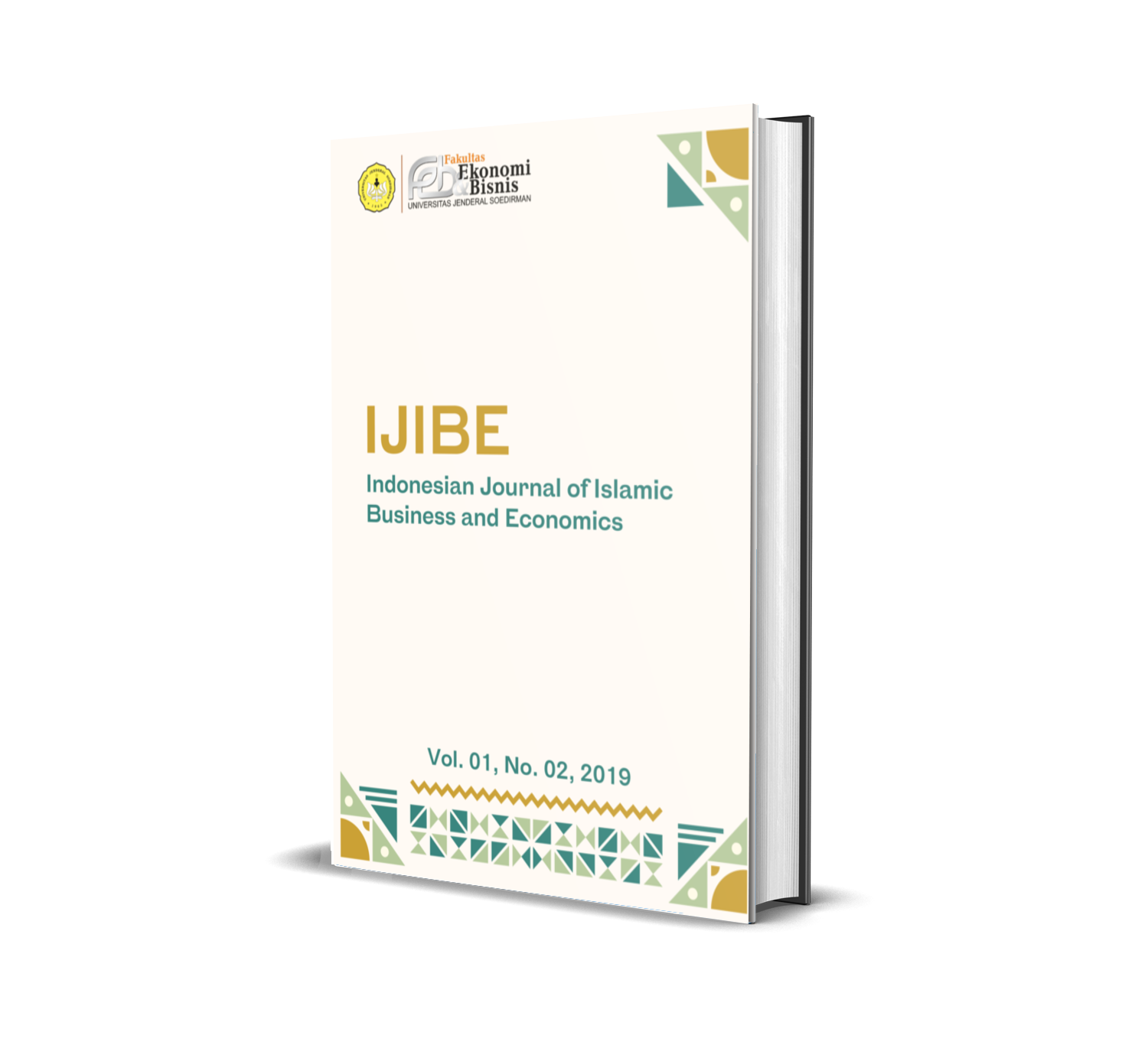THE ROLE OF PRODUCTIVE ZAKAT, INFAQ, AND SHODAQOH (ZIS) TOWARDS THE DEVELOPMENT OF MICRO AND SMALL ENTERPRISES IN BANYUMAS REGENCY (Case Study: LAZISNU Banyumas)
Main Article Content
Abstract
This study aims to see the difference in the state of MSEs before and after obtaining business capital assistance from LAZISNU Banyumas District which was seen from the indicators of business capital, turnover of sales, business profits, income of mustahiq and infaq mustahiq. The object of this study is that mustahiq who receives business capital assistance from LAZISNU Banyumas Regency as many as 32 mustahiq. The type of data collected is primary data. Data analysis methods include descriptive statistical tests and Wilcoxon signed rank test. Based on the results of the Wilcoxon signed rank test there is a difference in the variable business capital, sales turnover, business profit, mustahiq income and infaq of mustahiq before and after receive productive ZIS from LAZISNU Banyumas Regency. From the research result, The Amil Zakat, Infaq and Shodaqoh Institutions are expected to continue to improve productive zakat utilization by maintaining and increasing budget allocations for this productive economic program because it has been proven to have a significant effect on the development of mustahiq micro businesses so as to reduce poverty and grow new muzzaki.
Article Details

This work is licensed under a Creative Commons Attribution-NonCommercial-ShareAlike 4.0 International License.
Authors who publish with this journal agree to the following terms:
- Authors retain copyright and grant the journal right of first publication with the work simultaneously licensed under a Creative Commons Attribution License that allows others to share the work with an acknowledgement of the work's authorship and initial publication in this journal.
- Authors are able to enter into separate, additional contractual arrangements for the non-exclusive distribution of the journal's published version of the work (e.g., post it to an institutional repository or publish it in a book), with an acknowledgement of its initial publication in this journal.
- Authors are permitted and encouraged to post their work online (e.g., in institutional repositories or on their website) prior to and during the submission process, as it can lead to productive exchanges, as well as earlier and greater citation of published work (See The Effect of Open Access).

